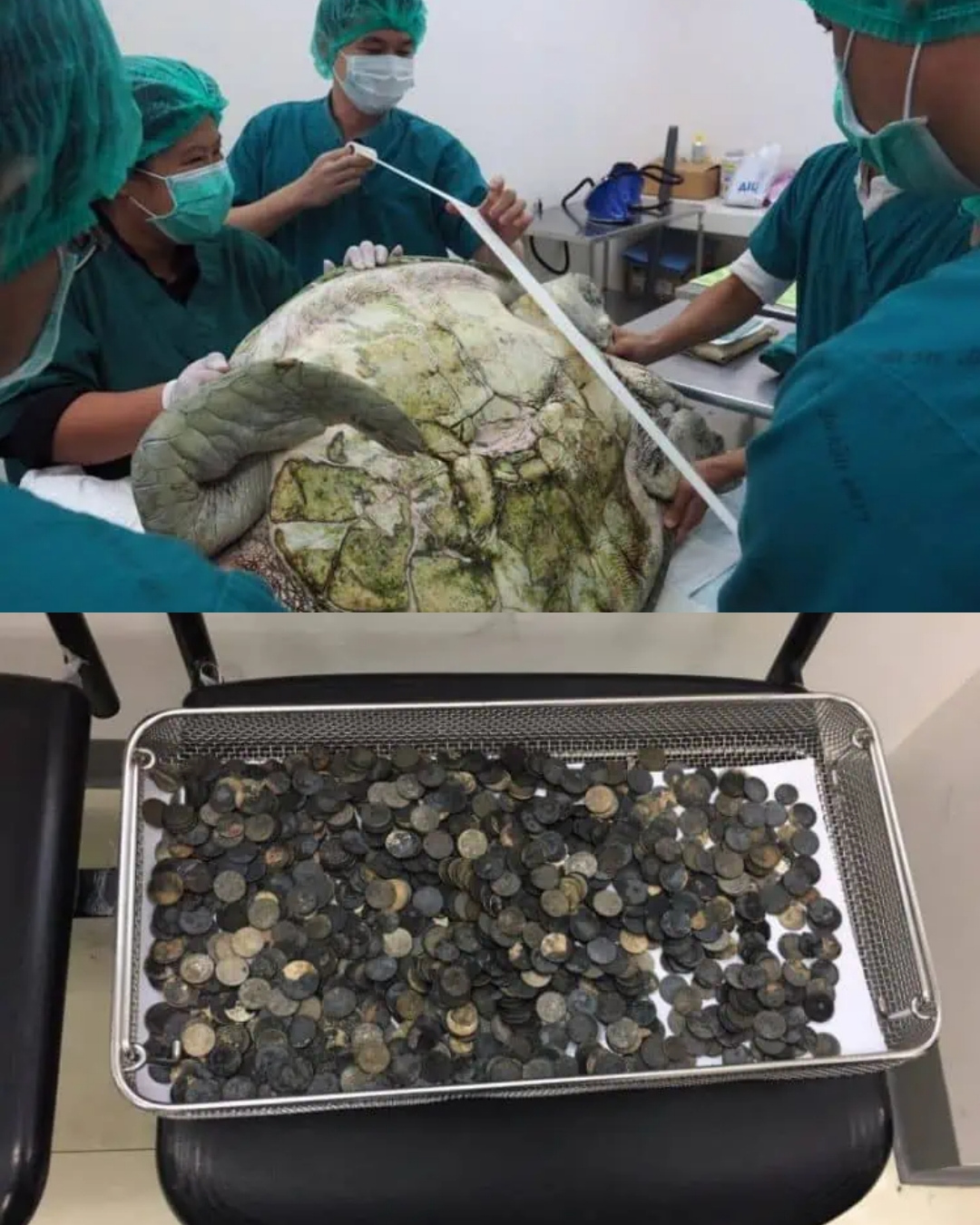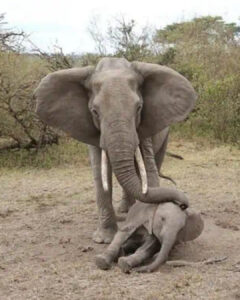In a pond in Sriracha, Thailand, lived a green sea turtle named Omsin — a name that means “Piggy Bank.” She was beloved, but unbeknown to many, she bore a deadly burden. For years, visitors dropped coins into her pond to bring luck or merit. To them it was harmless; to Omsin, it was slowly killing her.
Day by day, coin by coin, she swallowed the metal — foreign and local coins alike. Over time, her stomach filled with a solid mass of metal, pressing on her organs. She grew weak, floated at the surface, and lost her ability to dive or eat. It was a slow, painful decline.

When rescuers noticed her deteriorating state, they brought her to a veterinary team at Chulalongkorn University. The prognosis was grim. Her body was 59 kg; nearly one-tenth of that had become metal. Her shell was opened, her internal organs exposed, and surgeons worked meticulously. What they pulled out — more than 5 kg of coins, fused and corroded — stunned even the most seasoned among them.

They tried removing the mass through simpler incision points, but the coins had solidified deep within. The process demanded careful navigation to avoid injuring the turtle’s internal organs. Surgeons worked piece by piece, coin by coin, until the metal was finally gone.
After seven hours, the surgery succeeded. There was relief — and sorrow. Omsin had been saved, but the wound was a stark reminder of how innocent acts can have disastrous impacts. The turtle entered intensive recovery, diet controlled, movements monitored. Every sigh in the operating room carried guilt and hope.

Dr. Nantarika Chansue, who led the operation, later commented: “People believed they were making merit. In truth, they were causing harm.” The message was clear: superstition without awareness can wound lives — especially those that share our waterways.
Omsin’s story went national, capturing hearts and attention. She became more than a turtle. She became a cautionary tale. People were urged: don’t toss coins into ponds, rivers, or fountains. Metals corrode, tissues rupture, and creatures pay the price.
Today, Omsin carries a name like a warning: “Piggy Bank” — not for her wealth, but for how people treated her body as one. Her survival is a second chance. But whether the lessons hold is up to us.






